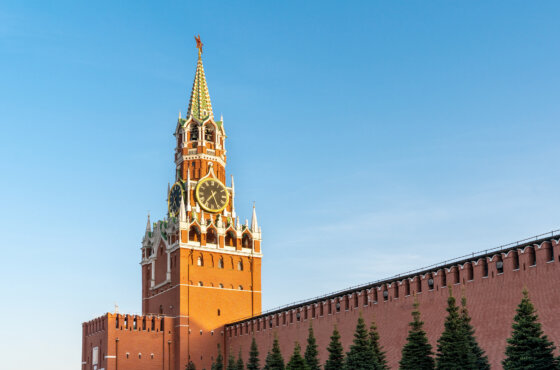Trump threatened to build up nuclear potential: what will happen now
US President Donald Trump said that the United States plans to increase its nuclear capabilities “until some people come to their senses.” According to him, first of all, the purpose of this is to increase pressure on Russia and China.

Photo: twitter.com/realdonaldtrump
“This threat is addressed to anyone you want - China, Russia and everyone who wants to play these games... Russia did not adhere to the spirit of the treaty and the treaty itself,” he said, speaking to reporters.
Trump has once again declared that, in his conviction, Russia is violating the agreement on the elimination of intermediate-range and shorter-range missiles (PRSMD) signed in 1987.
Earlier, the American leader announced his intention to withdraw from this contract. Russia claims to be in compliance with all the agreements signed by 30 years ago.
This week, US national security adviser John Bolton is holding talks in Moscow on the topic of implementing this treaty. During these negotiations, the Russian side stated that the US withdrawal from the INF Treaty would be a serious blow to the non-proliferation regime.
The INF Treaty imposed a ban on a whole category of armaments: the parties pledged to destroy all mid-range ground-based ballistic and cruise missiles (that is, with a defeat range from 500 to 5500 km), and not to produce, test or deploy such missiles in the future .
If the agreement is broken, both Moscow and Washington will again have the opportunity to deploy missiles of this category.
Among other things, the US withdrawal from the treaty is also perceived as a response to the actions of China, which is not bound by any deterrent agreements and therefore can develop such weapons at its discretion, which causes nervousness in its neighbors.
Last Saturday, President Trump has already said that the United States will withdraw from the treaty. In response, Russia promised to take retaliatory measures aimed at maintaining the nuclear balance.
At the same time, the Russian Security Council announced that Moscow was ready to work with the United States to eliminate mutual claims in connection with the implementation of the treaty on medium and shorter-range missiles.
What did bolton say
Trump's security adviser John Bolton flew to Moscow on Monday. In an interview with the Kommersant newspaper published on Monday, Bolton explained why the United States believes that Russia is violating the Nuclear Missile Treaty and described how the United States will act after withdrawing from the treaty.

Photo by wikipedia.org
“We don't think leaving the agreement is what creates the problem. We think what Russia is doing in violating the INF Treaty is a problem,” Bolton said.
According to him, only two countries in the world are bound by the INF Treaty. One of these countries is violating the agreement, said an adviser to Donald Trump. This leaves only one country bound by the terms of the document: the United States. And this, he said, is unacceptable.
“We see that China, Iran, North Korea - they are all strengthening their potential in ways that would violate the INF Treaty if these countries were its signatories. 15 years ago, there may have been opportunities to expand the agreement and make it multilateral. But today this is no longer feasible in practice. And the threat from China is real - you can ask countries like Japan, South Korea, Taiwan or Australia what they think about Chinese potential,” said John Bolton.
In addition, he said, many in Europe and the Middle East are nervous about Iran’s potential.
Will the US launch new missiles in Eastern Europe?
In response to a question about what the United States plans to do after withdrawing from the treaty, Bolton said that no decision had yet been made, noting, however, that cruise missiles falling under the contract were already on American ships in the Baltic Sea.
“I can say that this is another anomaly of the contract. Technological anomaly. Currently, sea-launched cruise missiles have a range that falls under the INF Treaty. But since they are located on American ships in the Baltic Sea, they do not violate the treaty. And if you move them to the shores of Poland, then this will already be a violation,” Bolton said in an interview with Kommersant.
Bolton, however, called the discussion of possible missile deployment points “idle talk.” According to Trump's adviser, the main problem remains that Russia does not admit at all that it is violating any treaties.
Is it possible to extend the treaty to China?
According to Trump, many countries around the world use rockets that would fall under the Soviet-American treaty in 1987. For example, this is China, which is unlikely to agree to destroy most of its ballistic arsenal.
«Now, for example, from a third to a half of the total number of Chinese ballistic missiles do not comply with the INF Treaty. And to assume that they will destroy perhaps more than half of their ballistic missiles is simply unrealistic,” Bolton said.
According to him, there is practically no chance that the contract will be saved.
“If Russia had eliminated all its weapons created in violation of this treaty, and if China had done the same, the situation would be different. But I think the likelihood of that is zero,” Bolton said.
Is the “reboot” doomed?
The Strategic Arms Reduction Treaty (START-3) between Russia and the United States eight years ago was signed by Presidents of the two countries Dmitry Medvedev and Barack Obama. It became the seventh treaty on the reduction of strategic nuclear forces concluded between Moscow and Washington.
According to START-3, by February 2018, Russia and the US were to reduce the number of their nuclear warheads to 1550 units each. 5 February, both parties said they had fulfilled the terms of the contract. The term START-3 expires in the 2021 year.
Many observers believe that the US withdrawal from the INF Treaty will portend a break in the agreement signed in 2010. According to Bolton, they discuss it in the Pentagon, but there is no understanding how to proceed.
“There is now a discussion in the United States about what to do with this agreement. One of the points that we consider important is to first resolve the issue with the INF Treaty. I talked about this with Nikolai Patrushev and others, explained our logic, we are trying to be open in this regard,” said the Trump adviser.
It is expected that on Tuesday John Bolton will hold talks with Russian President Vladimir Putin.
According to the press secretary of the Russian president, Dmitry Peskov, there are now many more questions than answers. “The meeting will be important, we will have to listen to explanations on a great variety of topics,” Peskov said.
Subscribe to ForumDaily on Google NewsDo you want more important and interesting news about life in the USA and immigration to America? — support us donate! Also subscribe to our page Facebook. Select the “Priority in display” option and read us first. Also, don't forget to subscribe to our РєР ° РЅР ° Р »РІ Telegram and Instagram- there is a lot of interesting things there. And join thousands of readers ForumDaily New York — there you will find a lot of interesting and positive information about life in the metropolis.











